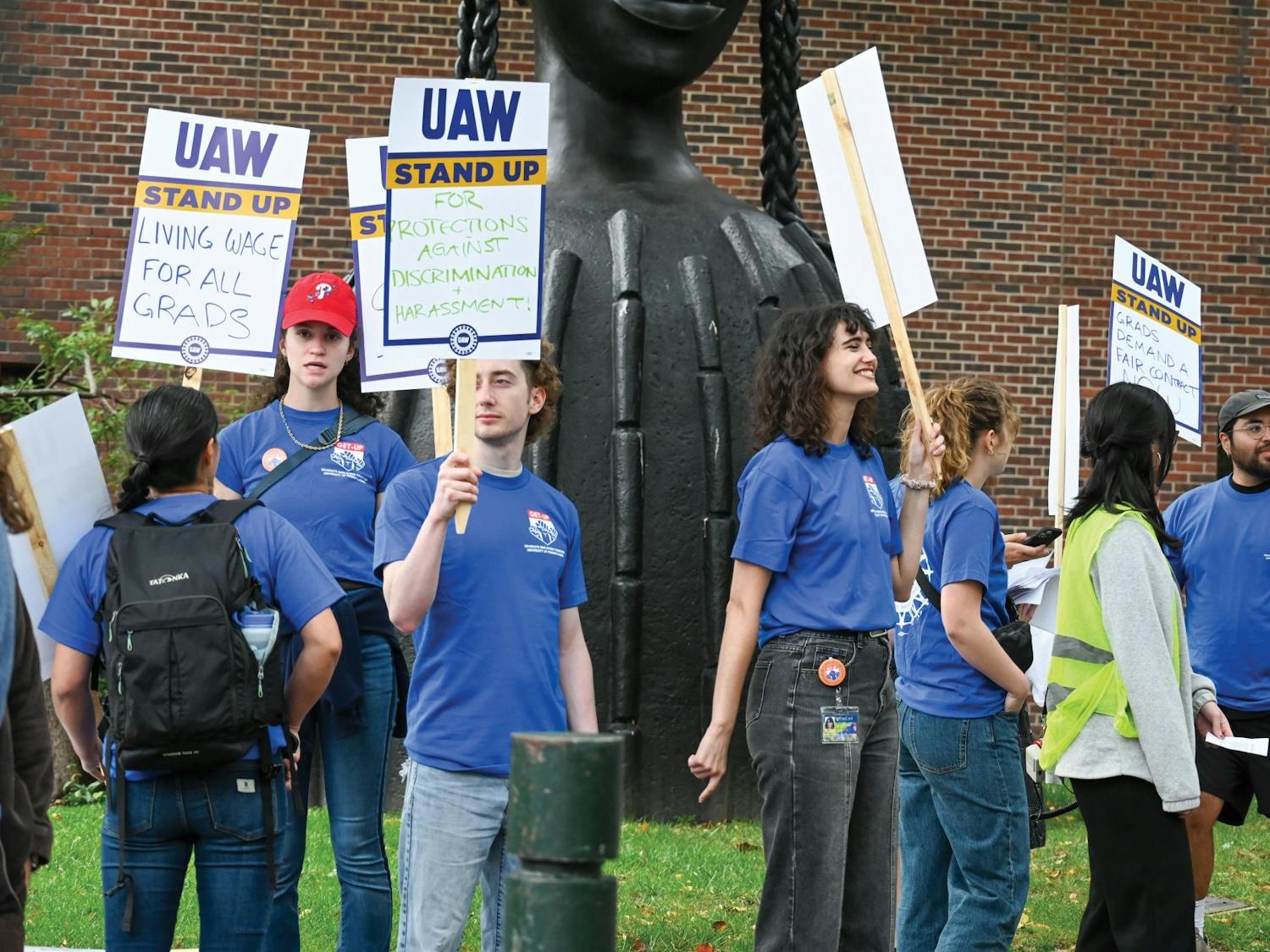The American Federation of Teachers filed an unfair labor practice charge with the National Labor Relations Board against the University yesterday.
The charge claims that Penn, as an employer, violated Section 8(a)(1) of the National Labor Relations Act, which prohibits an employer from threatening to discipline an employee for observing a strike.
On Monday, an e-mail was distributed to all faculty and staff members that stated that "staff members who do not report to work because of strike-related conditions may not be paid for the time absent and may be subject to disciplinary action."
The AFT is citing this e-mail -- which was generated by the Penn Human Resources Office -- as evidence that illegal practices took place.
"It's surprising that the University would threaten employees, but since they have done so, the AFT has filed an unfair labor practice charge," AFT lawyer Alaine Williams said.
University spokeswoman Lori Doyle said that Penn was justified in sending the e-mail, which she described as being "directed specifically to staff."
"With a strike looming, Penn, as an employer, has a right to tell its employees that the University will be open and operational and that they are expected to report to work," Doyle said.
However, many other members of the Penn community -- including some legal scholars and Graduate Employees Together-University of Pennsylvania members -- believe that the content of the e-mail is in fact a violation of the National Labor Relations Act.
The act guarantees faculty and staff the right to "'assist labor organizations' and to engage in 'concerted activities for mutual aid and protection,'" according to Law Professor Howard Lesnick.
Lesnick said the act also prohibits "employer actions that 'restrain or coerce employees.'" He cited a statement from the e-mail which he described as "explicitly warn[ing] employees not to refrain from work" as a possible example of an illegal action.
Penn Law professor Clyde Summers, who has been referred to as "Mr. Labor Law," said that he believes that what the University did was "flat out illegal."
Summers called the University's stance "an unfair labor practice."
"Any employee who wants to observe the strike is legally protected -- they cannot be disciplined or penalized for observing the strike," he said.
GET-UP spokesman Dillon Brown said he supports the AFT's charge.
"It is another example of the intimidation and obstruction of legal rights that we've seen all along from the administration," he said. "We have already filed two of these claims in the past for similar instances of intimidation."
Although the University Human Resources Department was unable to be reached for comment, Associate General Counsel for the University Eric Tilles maintained that the University does not "believe that the e-mail violates the law."
He said he feels that those who doubt the e-mail's legal validity are focusing "on a specific section of the National Labor Relations Act" and that there "are other considerations that are present in this case."
"We think that this interpretation [of the e-mail] is just not correct," he said. "Our interpretation of what the law requires is different."
Lesnick said that one stance the University could possibly take in its defense would be that "the prohibition [of employers from restraining employees for observing strikes] doesn't apply because GET-UP doesn't meet the criterion of being a labor organization."
He added that the Penn community must also struggle with the possible ideological implications of the strike.
"The more pertinent question ... is how these tactics can be thought compatible with the University's oft-proclaimed values and its place in American society," Lesnick said.
Penn students, faculty and staff may face a lengthy waiting period, as the legal process involving this charge is just beginning.
Now that the charge has been filed with the NLRB, the board will ask the AFT to provide evidence to support their complaint.
The University will then be given a chance to respond, and the decision will be up to the NLRB as to whether the charge will proceed to a hearing.








